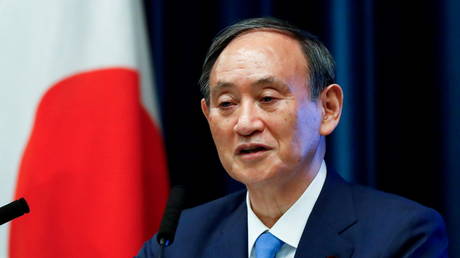
The approval rating for the Japanese cabinet has fallen 9% since June to 34%, according to a survey conducted by local media. Disapproval centers on Covid-19 concerns linked to the Summer Olympics, which kicked off last week.
The survey conducted by Nikkei and TV Tokyo was released on Monday morning, only three days after the Summer Olympic Games began. The analysis was undertaken between Friday and Sunday and the results showed the lowest ratings since Prime Minister Yoshihide Suga took office last September.
According to the survey, the most popular response for disapproval was ‘lack of leadership’, cited by 53%, followed by ‘poor management of the government and party’ at 35%.
The Olympic Games, which were supposed to occur in 2020 but were delayed to this summer due to the pandemic, have sparked widespread protests across Japan. Many feel that the global event poses a national health risk, potentially further spreading Covid-19.
An online petition labeled ‘Cancel the Tokyo Olympics to protect our lives’ has received over 450,000 signatures. If the event is held, the Olympics will be denying their own purpose of “celebrating peace,” the petition reads.
It also states that the virus has “not at all been under control,” and that the distribution of vaccines “is limited to economically developed countries and thus the pandemic is far from over.”
The link between the decision to proceed with the games and concerns regarding the handling of the pandemic were conveyed in Monday’s survey.
Respondents saying vaccinations ‘are not going smoothly’ gained six points to 65%, while the number of those saying they ‘are going smoothly’ decreased by nine.
A general election in Japan is due to occur on or before October 22, and the new poll presents a grim outlook for the prime minister.
However, Suga’s Liberal Democratic Party (LDP) has governed Japan all but four years since World War II, and largely controls parliament. A change in leadership, if it happens, would therefore most likely come from within the party.
Like this story? Share it with a friend!




